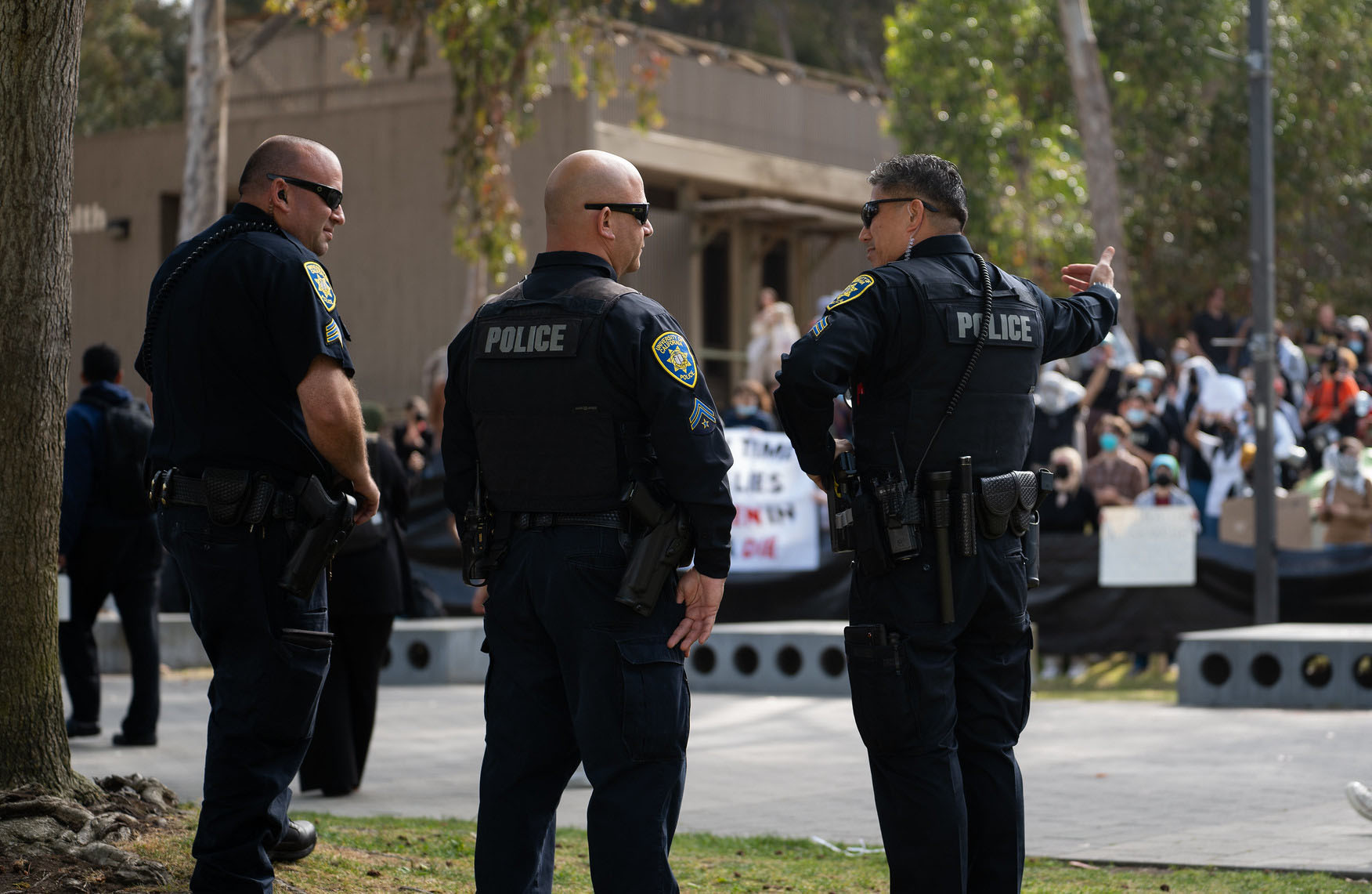Editor’s note: This article was updated on May 2 at 8:24 p.m. to reflect the Sixth College Student Council’s support of the statement and at 11:01 p.m. to reflect the Eighth College Student Leader Statement on Gaza Solidarity Encampments. On May 5, there was a final edit made to the story.
On Saturday, May 4, multiple offices and senators at the UC San Diego Associated Students released a statement on Instagram affirming support for student demands following the Gaza Solidarity Encampment established on May 1. The statement demanded that “Chancellor Pradeep Khosla, Vice Chancellor of Student Affairs Alysson Satterlund, Vice Chancellor of EDI Becky Petti, Interim Vice Chancellor for Resource Management and Planning Maureen Harrigan, UC Police Department, and other administrative units directing campus actions not to resort to violence.”
Earlier that night, administrators had informed A.S. that UCPD would conduct student ID checks at the encampment, providing UCSD students with student conduct violations and arresting non-affiliates or students refusing to provide identification. As of this afternoon, May 2, no ID checks or arrests have been reported.
The statement’s signatories were Earl Warren College President Kiera Hasan, Eleanor Roosevelt College President Rick Mandal, Revelle College President Anna McSorley, John Muir College President Ariana Esparza, and Thurgood Marshall College Chair Melia Movsesian.
“Once we saw the violence enacted to our fellow students at universities abroad and given the University’s recent history of not being student-centered, we knew that it was only a matter of time before something like that was proposed here at the University,” Mandal said to The UCSD Guardian. “It shows our constituents that their actions are not going unnoticed. It shows that those with power, albeit limited, are committed to those who need their power the most: students.”
The statement emphasized the importance of student protests, mentioning the 1980s movement to divest from South Africa apartheid.
“Educational institutions should protect and encourage freedom of speech and civic engagement—they should recognize extraordinary circumstances and remove systemic barriers to these activities,” the statement read.
Included was a section that highlighted the individual colleges’ mottos and questioned how the university would be able to maintain these values if student violations were issued and those in the encampment were punished.
“Again, we call on the UC San Diego Administration to not charge students for peacefully protesting,” the statement concluded. “Let us learn from our past and take this opportunity to listen to student concerns and protect our right to free speech.”
On May 2, the Sixth College Student Council voted in favor of supporting the statement, with 21 voting “yes” and 2 abstaining. Incoming Vice President of External for the Sixth College Student Council Mike Borisov wrote to The Guardian, “The Sixth College Student Council affirms the right to peacefully protest and exercise free speech without the fear of charges being brought under the student conduct violations code.”
On the same day, the Eighth College Student Council also made an Instagram post highlighting their support of the joint statement. “UCSD administrators have a choice in how they respond to encampment,” the Instagram post read, “and their decision will serve as a critical indicator of whether or not they are truly committed to protecting communities of color and uplifting mutual knowledge.”
“Unfortunately, no one from our team was able to make the meeting, and we were thus left off of the [joint statement] because we weren’t there to consent to being added,” an Eighth College Student Council Member who wished to remain anonymous stated to The Guardian. “So, we decided that it was very important for Eighth to show a sign of solidarity, especially since we’re a new college and many people on board are very passionate about Palestinian liberation and staying in solidarity with those fighting the occupation across the globe.”
“What I want students to take away from this is that you have the right to take up space and demand change,” McSorely told The Guardian. “The UCSD administration tries to discourage protests and activism, but all of the colleges are founded on activism in some way and it’s important to remember that.”










David • May 3, 2024 at 6:16 am
I wonder how the pro-terrorist protestors feel about free speech in Gaza?